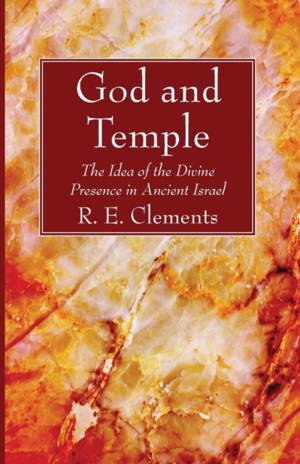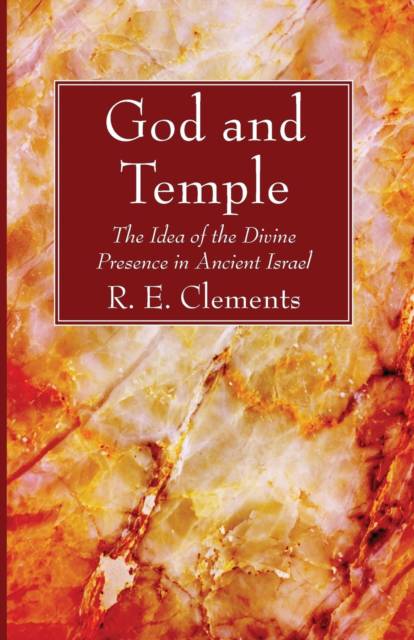
- Afhalen na 1 uur in een winkel met voorraad
- Gratis thuislevering in België vanaf € 30
- Ruim aanbod met 7 miljoen producten
- Afhalen na 1 uur in een winkel met voorraad
- Gratis thuislevering in België vanaf € 30
- Ruim aanbod met 7 miljoen producten
Zoeken
Omschrijving
The temple of Jerusalem became the center in ancient Israel of a whole group of concepts concerning the divine presence. It was regarded as the very dwelling place of God, the earthly throne of the heavenly King. In order to understand the origin of this belief, Dr. Clements examines the Canaanite notions of divine dwelling-places, and the early ideas of God's presence in Israel. The origins of the Israelite temple in Jerusalem are then considered, and the nature of its rites and symbolism. Particular attention is given to the relationship between the temple of the Davidic monarchy and its significance for the political history of the Israelite nation. The destruction of the temple in 586 BC severely challenged the traditional views about its meaning and led ultimately to great changes in the Jewish understanding of the divine presence. Jerusalem, and the religious ideas surrounding it, became increasingly part of an eschatological hope. Dr. Clements shows how this was important for the early Christian church, which rejected the Jerusalem temple, and which asserted that the divine presence had been revealed to man in Jesus Christ and was experienced in the church through the Holy Spirit.
Specificaties
Betrokkenen
- Auteur(s):
- Uitgeverij:
Inhoud
- Aantal bladzijden:
- 176
- Taal:
- Engels
Eigenschappen
- Productcode (EAN):
- 9781498299404
- Verschijningsdatum:
- 2/06/2016
- Uitvoering:
- Paperback
- Formaat:
- Trade paperback (VS)
- Afmetingen:
- 140 mm x 213 mm
- Gewicht:
- 226 g

Alleen bij Standaard Boekhandel
+ 72 punten op je klantenkaart van Standaard Boekhandel
Beoordelingen
We publiceren alleen reviews die voldoen aan de voorwaarden voor reviews. Bekijk onze voorwaarden voor reviews.











